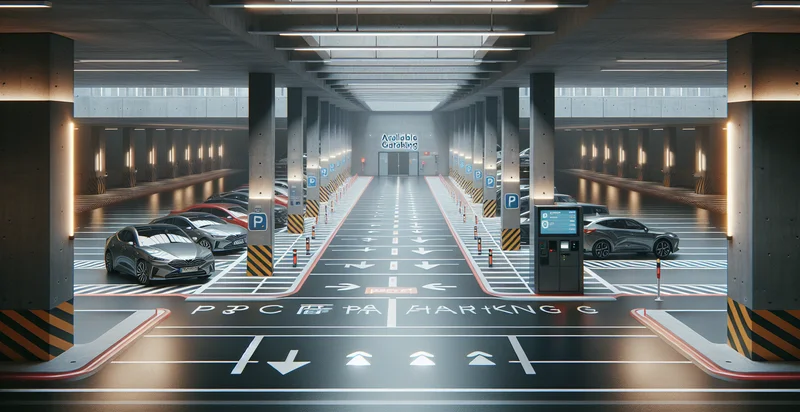Identify garage capacity
using AI
Below is a free classifier to identify garage capacity. Just upload your image, and our AI will predict the maximum number of vehicles that can fit in a garage. - in just seconds.

Contact us for API access
Or, use Nyckel to build highly-accurate custom classifiers in just minutes. No PhD required.
Get started
import nyckel
credentials = nyckel.Credentials("YOUR_CLIENT_ID", "YOUR_CLIENT_SECRET")
nyckel.invoke("garage-capacity", "your_image_url", credentials)
fetch('https://www.nyckel.com/v1/functions/garage-capacity/invoke', {
method: 'POST',
headers: {
'Authorization': 'Bearer ' + 'YOUR_BEARER_TOKEN',
'Content-Type': 'application/json',
},
body: JSON.stringify(
{"data": "your_image_url"}
)
})
.then(response => response.json())
.then(data => console.log(data));
curl -X POST \
-H "Content-Type: application/json" \
-H "Authorization: Bearer YOUR_BEARER_TOKEN" \
-d '{"data": "your_image_url"}' \
https://www.nyckel.com/v1/functions/garage-capacity/invoke
How this classifier works
To start, upload your image. Our AI tool will then predict the maximum number of vehicles that can fit in a garage..
This pretrained image model uses a Nyckel-created dataset and has 11 labels, including Eight-Car, Five-Car, Four-Car, Nine-Car, None, One-Car, Seven-Car, Six-Car, Ten-Car and Three-Car.
We'll also show a confidence score (the higher the number, the more confident the AI model is around the maximum number of vehicles that can fit in a garage.).
Whether you're just curious or building garage capacity detection into your application, we hope our classifier proves helpful.
Related Classifiers
Need to identify garage capacity at scale?
Get API or Zapier access to this classifier for free. It's perfect for:
- Parking Space Optimization: Businesses with limited parking can utilize the garage capacity identifier to monitor available spaces in real-time. This functionality helps optimize parking assignments, reducing congestion and improving customer satisfaction by minimizing the time spent looking for a parking spot.
- Parking Fee Management: By assessing garage capacity, this function allows parking facilities to dynamically adjust pricing based on availability. During peak hours, higher fees can be charged while offering discounts during off-peak times to encourage usage, maximizing revenue opportunities.
- Urban Planning and Development: City planners can leverage the garage capacity identifier to gather data on parking utilization across different areas. This information is vital for developing more efficient urban designs, ensuring that new constructions meet community parking needs without over- or under-providing spaces.
- Smart City Integration: The function can be integrated into smart city infrastructure to provide real-time data to drivers via apps or digital signage. This enhances traffic flow by directing drivers to available parking spots, reducing congestion and environmental impact from idling vehicles.
- Fleet Management: Companies with vehicle fleets can utilize the identifier to track and manage garage capacities for their vehicles. This helps in planning maintenance schedules and optimizing garage usage, ensuring that vehicles are stored and retrieved efficiently, reducing operational costs.
- Event Management: Event organizers can use the garage capacity identifier to predict and manage parking requirements during events. By accurately forecasting the number of vehicles expected, they can implement strategies to either increase parking availability or guide attendees to alternative transportation options.
- Insurance Assessment: Insurance companies can use the data derived from garage capacity assessments to evaluate risks associated with vehicle storage. Understanding capacity utilization helps in determining appropriate premiums and policies for businesses based on their actual parking conditions.


